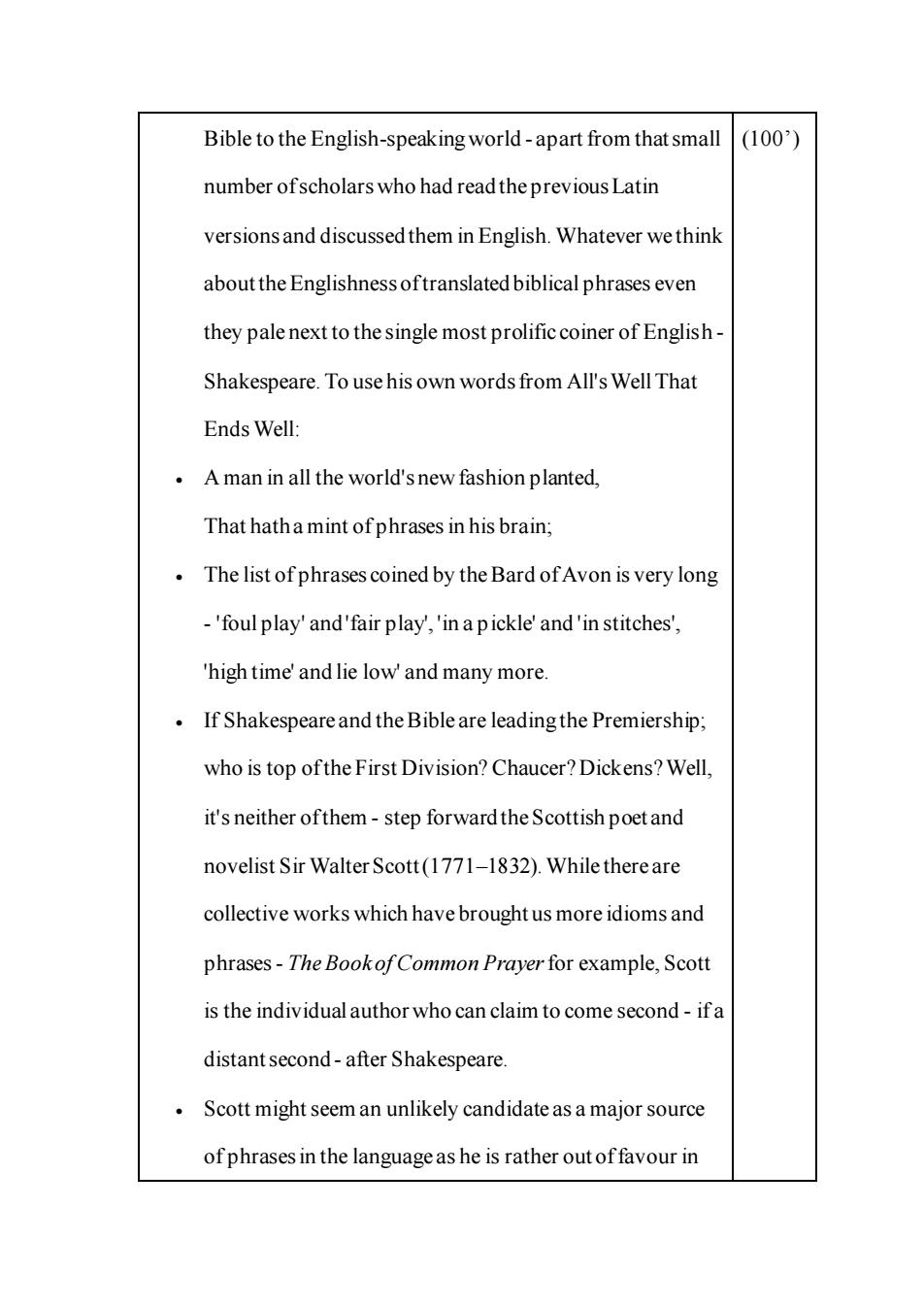正在加载图片...

Bible to the English-speaking world-apart from that small(100') number ofscholars who had read the previous Latin versions and discussed them in English.Whatever we think about the Englishnessoftranslated biblical phrases even they pale next to the single most prolific coiner of English Shakespeare.To use his own words from All's Well That Ends Well: A man in all the world's new fashion planted, That hatha mint ofphrases in his brain; 。 The list of phrases coined by the Bard ofAvon is very long -'foul play'and'fair play'.'in a pickle'and'in stitches', high time'and lie low and many more If Shakespeare and the Bible are leadingthe Premiership; who is top ofthe First Division?Chaucer?Dickens?Well it's neither ofthem-step forward the Scottish poet and novelist Sir Walter Scott(1771-1832).While there are collective works which have brought us more idioms and phrases-The BookofCommon Prayer for example,Scott is the individual author who can claim to come second-if a distant second-after Shakespeare Scott might seem an unlikely candidate as a major source of phrases in the language as he is rather out of favour in Bible to the English-speaking world - apart from that small number of scholars who had read the previous Latin versions and discussed them in English. Whatever we think about the Englishness of translated biblical phrases even they pale next to the single most prolific coiner of English - Shakespeare. To use his own words from All's Well That Ends Well: • A man in all the world's new fashion planted, That hath a mint of phrases in his brain; • The list of phrases coined by the Bard of Avon is very long - 'foul play' and 'fair play', 'in a pickle' and 'in stitches', 'high time' and lie low' and many more. • If Shakespeare and the Bible are leading the Premiership; who is top of the First Division? Chaucer? Dickens? Well, it's neither of them - step forward the Scottish poet and novelist Sir Walter Scott (1771–1832). While there are collective works which have brought us more idioms and phrases - The Book of Common Prayerfor example, Scott is the individual author who can claim to come second - if a distant second - after Shakespeare. • Scott might seem an unlikely candidate as a major source of phrases in the language as he is rather out of favour in (100’)